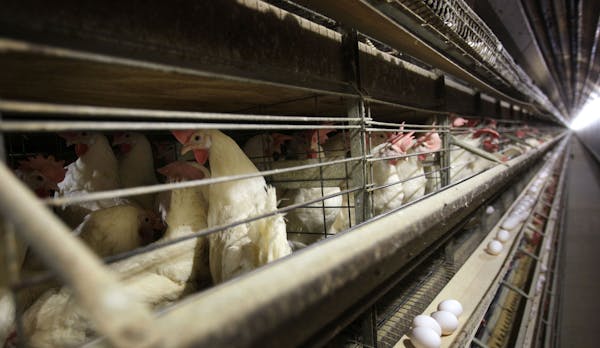This fall's sugar beet harvest is the worst in decades in northwestern Minnesota and North Dakota, another blow in a difficult year for American farmers and one that is quickly rippling through the nation's food supply.
The reason: Rain and snow kept farmers in much of the region out of fields until the sugar beet crop had been damaged by frost. And the problem for sugar supplies broadly was made worse by the cold snap earlier this week that extended deep into the southern U.S., where sugar cane harvests were also harmed.
As a result, sugar prices have been rising in commodity trading this week on expectations that U.S. farmers won't be able to meet demand and food producers will have to turn to imports.
Two major distributors of sugar, including Edina-based United Sugars Corp., reportedly took the rare step this week of declaring "force majeure," telling customers they won't be able to deliver on contracts because of forces beyond their control. An executive of the company didn't return calls for comment Thursday.
But with sugar already extremely cheap — selling for just under 13 cents per pound on commodity markets this week — and companies able to bring sugar in from elsewhere, the poor harvest should have little effect on food prices for consumers.
In the Upper Midwest, it's difficult for harvesting equipment to pull sugar beets out of frozen ground. Data is still being collected, but farmers in some parts of Minnesota and North Dakota lost more than one-fourth of their crop.
"This is hands-down the worst harvest we've had in 48 years," said Mike Metzger, a vice president of the Minn-Dak Farmers Cooperative, which operates a sugar beet processing plant in Wahpeton, N.D., for about 500 farmers, including 350 in Minnesota.
Minnesota is the largest sugar beet-growing state in the nation, and North Dakota is the second-largest. The two states account for over half of the nation's sugar beet acres.
Both the August pre-harvest and the full harvest, which typically starts Oct. 1, were delayed because the ground was too wet. Farmers usually harvest about one-tenth of their crop for immediate processing in August and September. The rest is harvested later in the fall, then piled up to freeze for processing through the winter. A burst of rain at the end of September delayed the October harvest, and farmers never caught up.
"It just didn't quit," Metzger said. "We kept getting rain showers. We got buried with a couple inches of snow. And we got hit with some freezing temperatures."
American Crystal Sugar Co. farmers in the region, most of them farther north than Minn-Dak farmers, lost more than a third of their harvest. Growers told the Grand Forks Herald that they must pay American Crystal $343 for every unharvested acre. The money will help the cooperative cover the operating costs of its processing plants.
Executives at American Crystal did not respond to a request for comment.
Western Sugar Cooperative, which represents farmers in Colorado, Wyoming, Montana and Nebraska, also declared a force majeure this week. "These are the worst weather conditions we have had as a cooperative," Heather Luther, its general counsel, told Reuters. The Denver-based cooperative dates to 2002.
The trouble for sugar beet growers and distributors comes after farmers of corn and soybeans were walloped by rain-driven planting delays and the loss of key export markets due to the trade wars. In Minnesota, as of early this week, the corn harvest was about two weeks behind its average pace while nearly all of the state's soybeans were harvested.
At this time of year, harvested sugar beets are generally stored in piles on the ground next to sugar factories because, thanks to their high water content, the bulk of the pile stays frozen even when temperatures briefly warm up.
But when they're still in the ground, getting frozen and then thawing again renders a sugar beet almost worthless. "That freeze-thaw, freeze-thaw damages the tissue," Metzger said. "We can't store something like that."
Those beets "juice out" when they're piled up so they can't sit long enough to be processed.
Minn-Dak took unusual measures to try to accept as many sugar beets as possible. The cooperative allowed farmers to stockpile beets on their land, accepted frozen beets directly into the processing facility and accepted beets that don't meet their standards for heat.
"We absolutely did everything we could and threw away our playbook on receiving sugar beets, to try to get as many acres as we could," Metzger said.
For farmers in southern Minnesota, the harvest went well.
"We actually harvested 99% of our crop. We only left a few acres," said Todd Geselius, a vice president of the Southern Minnesota Beet Sugar Cooperative near Renville. "We're feeling very fortunate."
Reuters contributed to this report. Adam Belz • 612-673-4405
